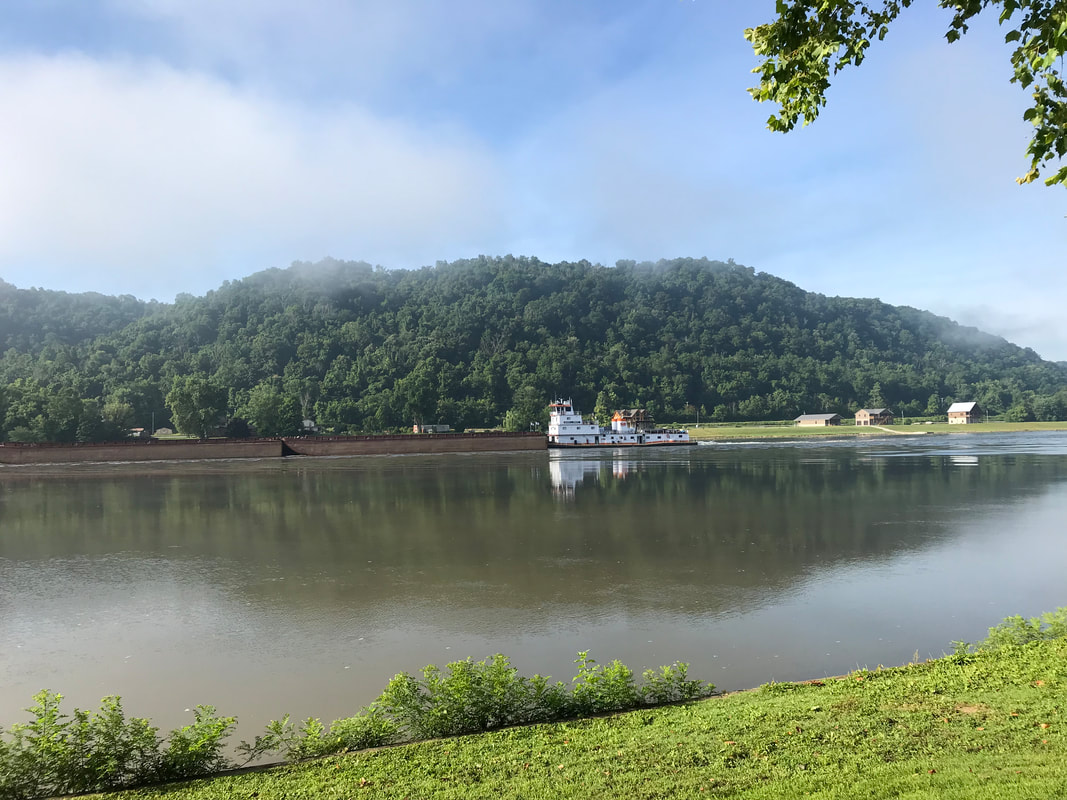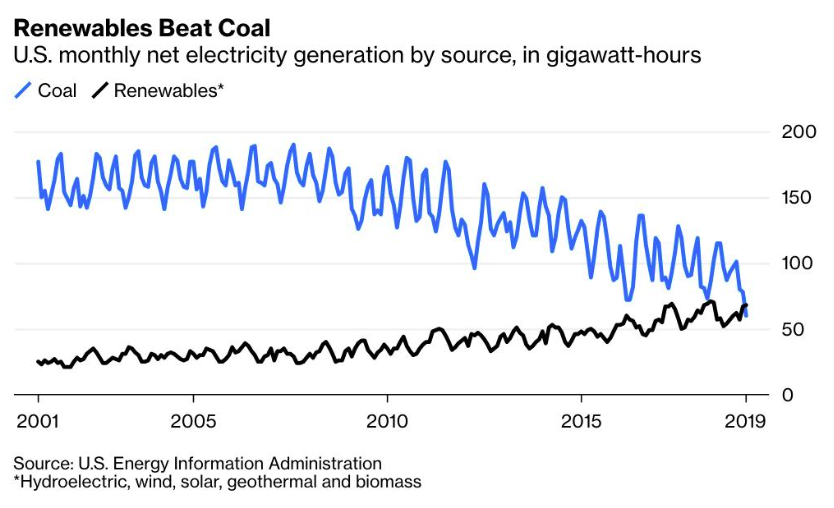|
I went back to some old haunts in Southeast Ohio recently. My friend’s family had owned a cabin in the Appalachian part of the state for years, and I’d been fortunate to spend quite a bit of time there. It was something of a reunion of 40-something friends that brought us to a campground in the area in June, right along the Ohio River. We did some wonderful hiking, but there often wasn’t much to do but sit and watch barges go by on the river. The barges, as it turns out, were moving coal toward a big power plant on the West Virginia side. I thought about the amount of energy being used to extract the coal, fuel the barges and power the plant. Then I thought about how mining coal would affect the trees and the hills all around us. Not to mention the carbon-filled air from the coal plant. It seemed there might be some more modern and healthier ways to create electricity. Back in Chicago, there’s been another thing I’ve observed recently: a buzz around electricity without coal. I’ve met several people in the past year who are working in the industry or even starting energy companies themselves. It’s given me some room for optimism. Here’s some evidence of less reliance on coal in the place I call home, along with the recent closures of nearby coal-fired plants. There’s some national data showing a trend here. That’s what brought me to a town hall-style event at the Institute of Cultural Affairs (ICA) in my neighborhood of Uptown a few weeks ago. ICA has a noble mission, committed to equity and the environment, located in a “green rise” building powered by solar panels. The event was to discuss a bill, the Clean Energy Jobs Act (CEJA), with some lofty goals: 100% renewable energy in Illinois by 2050 and 40 million solar panels and 2,500 wind turbines by 2030. The bill has provisions around jobs, too, including investing in former power plant workers and disadvantaged communities. The people at the town hall included families and a cross-section of Uptown residents. They came with common-sense concerns about energy and the economy. A lot of people felt like alternative energy was expensive, something that was out of reach and only available to the wealthy. Event organizers explained how that wasn’t necessarily the case. I’m not entirely sure why CEJA wasn’t approved in the last session of the General Assembly. The bill makes quite a bit of sense and will not drain resources in a time when state finances are suffering. The hope is that it will pass in November and then be signed into law. A meeting room in Uptown is a far cry from the banks of the Ohio River and coal country. But maybe an effort to further wean us from fossil fuel can start here in Chicago and Illinois. That could be hard to imagine for those in Ohio and West Virginia, who rely on coal for so much, but perhaps there is a path forward that works for everyone—and for our own health and well-being. ICA has a nice write-up about the Uptown event here. ICA is organizing two more similar listening events, in South Shore on Aug. 28 and in Bronzeville in October. Click here to learn more about CEJA and to get involved.
1 Comment
|
The blog is a space for stories of the natural world and the occasional post about communications and strategy.
Archives
September 2022
|


 RSS Feed
RSS Feed